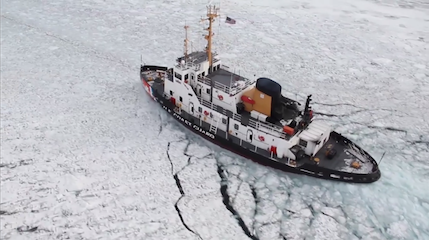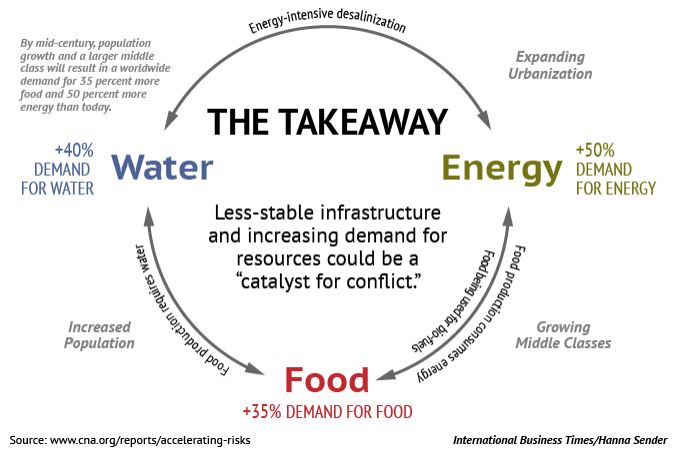Superstorms, Less-Stable Infrastructures And Other Strains On Global Powers: How Climate Change Affects National Security

The CNA Corporation Military Advisory Board
released its 2014 report on climate change and national security Tuesday.
The board of retired high-ranking U.S. military officers looked at data from the recent National Climate Assesment to answer two questions:
1. Have new threats or opportunities associated with projected climate change or its effects emerged? What will be the impacts on our military?
2. The 2014 National Climate Assessment indicates that climate change, once considered an issue for a distant future, has moved firmly into the present. What additional responses should the national security community take to reduce the risks posed to our nation and to the elements of our national power (political, military, social, infrastructure, and information systems)?
The report advises that less-stable infrastructures, pressure from a growing population and increasing demands for decreasing resources could be a “catalyst for conflict.” Climate change, they argue, is happening at a much faster rate than previously predicted. The strain it creates on global powers could lead to more conflicts.

The following graphic highlights some key facts and figures from the report:

And don't miss members of the advisory board explaining the current effects of climate change on military dynamics:
© Copyright IBTimes 2025. All rights reserved.
Join the Discussion






















